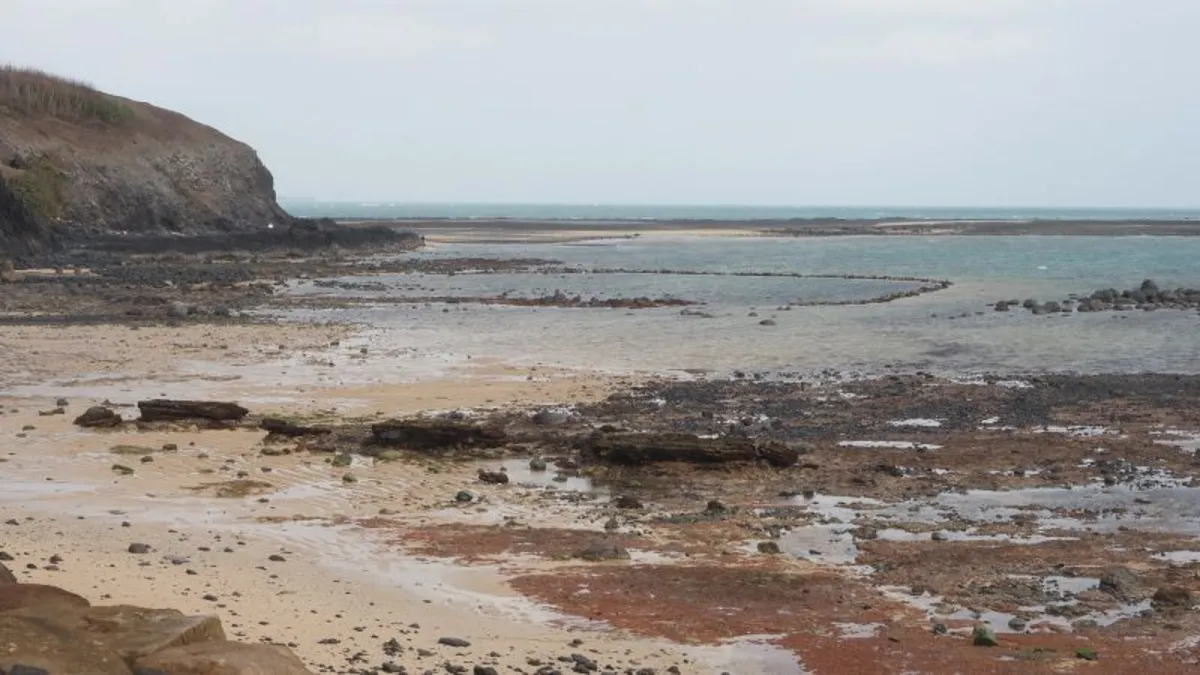
During my honeymoon, my husband and I encountered a fascinating relic at the National Museum Zurich in Switzerland: the ancient Robenhausen door. This remarkable wooden board, dating back over 5,500 years, stands as one of the most ancient preserved doors in Europe. Discovered by archaeologist Jakob Messikommer in 1868 in the marshes of Wetzikon, this prehistoric artifact likely belonged to a Neolithic home in a village near Lake Pfäffiker. Standing before it, I couldn't help but wonder about the lives of those who crafted and passed through such a significant entryway thousands of years ago. Artifacts like this door, along with fossils, are crucial in piecing together the intricate story of humanity's past.
In 2010, a significant discovery was made when commercial fishing nets brought up a fossilized jawbone off the coast of Taiwan. Scientists were intrigued to find that this jawbone, known as Penghu 1, belonged to a Denisovan man. This ancient individual likely lived on a submerged land bridge that once connected present-day China and Taiwan. Discoveries of Denisovan fossils are rare, leaving scientists with limited insights into how our extinct relatives may have appeared. However, revisiting these fossils at the Taiwan National Museum of Natural Science could provide vital clues about our distant ancestors and their adaptations.
Mark your calendars for Saturday night when April's full moon, affectionately dubbed the pink moon, will be on display at 8:22 p.m. ET. Despite its springtime name, this full moon will shine with a white-golden hue and may appear smaller than usual. This phenomenon occurs because the moon is classified as a micromoon, meaning it is at its farthest distance from Earth during its orbit. Interestingly, April's full moon is the smallest micromoon we will witness this year.
In the realm of space exploration, tech billionaire Jared Isaacman recently made headlines. During a Senate confirmation hearing, he, chosen by former President Donald Trump to lead NASA, expressed his intent to prioritize sending American astronauts to Mars. This potential shift in focus could reshape the future of the agency's missions and goals in space.
The dire wolf, which inspired the fearsome creatures seen in the popular series "Game of Thrones," once roamed North America but went extinct approximately 12,500 years ago. Remarkably, scientists at the biotech company Colossal Biosciences have made strides in resurrecting this ancient species through gene editing techniques. They recently shared videos of healthy dire wolf puppies, showcasing both their adorable forms and their juvenile behaviors as they explore a sprawling 2,000-acre site. Colossal's CEO, Ben Lamm, mentioned that they utilized DNA from a 13,000-year-old tooth and a 72,000-year-old skull to bring these creatures back to life.
While the return of dinosaurs is not on the horizon, researchers continue to explore the events leading to their extinction. Recent studies suggest that dinosaurs were thriving before the asteroid impact that led to their disappearance 66 million years ago. By analyzing the fossil records of the four primary dinosaur groups from the 18 million years preceding the mass extinction, scientists have found evidence that challenges previous assumptions. According to Alfio Alessandro Chiarenza, a Royal Society Newton International Fellow at University College London, "If it weren’t for that asteroid, they might still share this planet with mammals, lizards, and their surviving descendants: birds."
In a groundbreaking project, deep-sea mapping company Magellan has created a full-scale "digital twin" of the RMS Titanic, using 3D underwater scans to illuminate the ship's tragic final moments before sinking 113 years ago. Featured in a National Geographic documentary, this extensive scan has revealed new details, including evidence that 35 boiler room engineers sacrificed themselves to maintain power for the ship, allowing distress signals to be sent. Additionally, the findings have exonerated an officer previously accused of abandoning his post during the crisis.
In the world of archaeology, there are always more stories waiting to be uncovered. Recently, an enigmatic altar found in an ancient Mayan city has raised questions about its origins, indicating it may not have been constructed by the Maya. This ornately decorated structure could provide crucial insights into the geopolitics of that era.
In another intriguing find, construction of a soccer field in Vienna, Austria, revealed a mass grave of soldiers dating back nearly 2,000 years, offering rare and gruesome evidence of conflicts between the Romans and Germanic tribes. Meanwhile, scientists are closing in on understanding a long-reported phenomenon known as "milky sea" events, characterized by a vast ocean glow that has puzzled researchers for over 400 years.